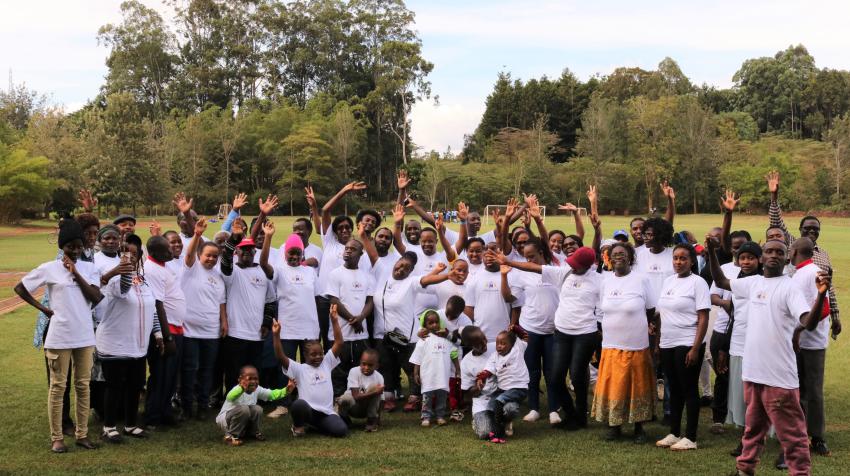Aboriginal and Torres Strait Islander Australians make up 2.5 per cent of the Australian population and continue to suffer disproportionately from the consequences of European settlement. The life expectancy for Indigenous Australians is 10 years lower than that of other Australians; the death rates for Indigenous people are twice as high across all age groups; and intentional self-harm was the leading cause of death from external causes for Indigenous males between 2001 and 2005.1 Although definitive national data about the incidence and prevalence of mental health disorders among Aboriginal and Torres Strait Islander Australians is not available, it is clear there are enormous disparities in mental health outcomes for Indigenous people.
The small, dispersed nature of Aboriginal and Torres Strait Islander populations and communities, the lack of infrastructure required to establish and maintain health and well-being in remote communities, the extra-ordinarily high levels of morbidity and mortality, the extreme poverty and disadvantage all pose major challenges to mental health service delivery.
A series of extensive and expensive national enquiries and consultations between 1987 and 1995 reported considerable consensus among a range of Aboriginal and Torres Strait Islander people and organizations on several core issues. One is that many mental health professionals have little understanding of Indigenous Australian history, culture, and society, resulting in frequent misdiagnosis and inappropriate treatment. Another is that there is a high level of unmet need for social, emotional, and mental health support. Also Aboriginal and Torres Strait Islander people perceived mainstream mental health services to be failing them.2
INDIGENOUS CONCEPTS OF SOCIAL AND EMOTIONAL WELL-BEING
Aboriginal and Torres Strait Islander people have drawn an important distinction between the concepts of social and emotional well-being, and non-Indigenous concepts of mental health. According to the Social Health Reference Group, convened by the Australian Government:
"The concept of mental health comes more from an illness or clinical perspective and its focus is more on the individual and their level of functioning in their environment. The social and emotional well-being concept is broader than this and recognizes the importance of connection to land, culture, spirituality, ancestry, family and community, and how these affect the individual." 3
Mental health and mental illness are seen to come under the umbrella of the broader concept of social and emotional well-being in Indigenous contexts -- just one part of a more holistic view of health and well-being. Aboriginal and Torres Strait Islander people maintain that the determinants of contemporary social and emotional well-being have their roots in colonial history and an ongoing disadvantage involving widespread grief, loss, racism, discrimination, adversity, and the transgenerational aftermath of government policies which supported the forcible removal of thousands of Aboriginal children from their parents up until 1970.4
The need to find a way to measure the social and emotional well-being of Indigenous Australians resulted in the development of an interim module of social and emotional well-being, used for the first time in the 2004/05 National Aboriginal and Torres Strait Islander Health Survey. The results indicated that 27 per cent of Indigenous respondents reported serious psychological distress, and were twice as likely as non-Indigenous Australians to report this.5 As well as being an indicator of poor social and emotional well-being, an emerging body of evidence suggests that serious psychological distress forms part of the causal pathway to the proportion of sickness in an Indigenous locality and mortality risk.6 Modifying the social determinants that lead to serious psychological distress should therefore result in a range of beneficial health outcomes.
APPROACHES TO MENTAL HEALTH SERVICE DELIVERY FOR INDIGENOUS AUSTRALIANS
The National Strategic Framework for Aboriginal and Torres Strait Islander People's Mental Health and Social and Emotional Well Being 2004-2009, also known as the SEWB Framework, was designed to complement the third Australian National Mental Health Plan 2003-2008. The SEWB Framework is based on the Aboriginal definition of health:
"Aboriginal concept of health is holistic, encompassing mental health and physical, cultural and spiritual health. Land is central to well-being. This holistic concept does not merely refer to the 'whole body' but in fact is steeped in the harmonised interrelations which constitute cultural well-being. These interrelating factors can be categorised largely as spiritual, environmental, ideological, political, social, economic, mental and physical. Crucially, it must be understood that when the harmony of these interrelations is disrupted, Aboriginal ill health will persist." 7
The SEWB Framework is underpinned by nine guiding principles which recognize the need to support self-determination and culturally valid understandings of mental health and well-being, and the impact of trauma, grief, loss, discrimination, and human rights issues on the social and emotional well-being of Aboriginal and Torres Strait Islander communities. Two principles are particularly important for the delivery of social and emotional well-being and mental health services.
SERVICES SHOULD BE INITIATED AND CONTROLLED BY INDIGENOUS COMMUNITIES
Services that are initiated and controlled by Aboriginal and Torres Strait Island communities are particularly important for providing and/or facilitating culturally appropriate and responsive service delivery. Such services are more likely to:
- Advance self-determination
- Be culturally proficient
- Reflect recommendations from key national reports
- Be flexible in response to the community's expressed needs
- Involve community members in the design, delivery, and evaluation of services
- Be accountable to the community (through governance arrangements)
- Provide social, emotional, and mental health care as part of holistic care in primary health care settings
- Be integrated with other health and specialist services to support referral and coordinated care
MENTAL HEALTH PRACTITIONERS MUST BE CULTURALLY COMPETENT
Each Aboriginal and Torres Strait Islander community is unique in its culture(s) and history, and services need to be provided in ways that respect the integrity of the community and preserve the safety and well-being of its residents. Unresolved trauma, grief, and loss are potentially volatile issues, which, if confronted or dealt with insensitively, may increase psychological distress in communities and populations. It is essential that any non-Indigenous mental health practitioners have the cultural competencies to safely and effectively deliver services to Aboriginal and Torres Strait Islander people.
Strategies to improve the social and emotional well-being of Aboriginal and Torres Strait Islander people (and mitigate its opposite, serious psychological distress) require in-depth knowledge of Indigenous cultures and communities. Initiatives adapted from non-Aboriginal concepts of mental health tend to overlook sources of resilience and recovery found within one of the oldest continuous living cultures in history. Cultural concepts such as connection to land, culture, spirituality, ancestry, family, and community have been identified as protective factors which can serve as sources of resilience and help to moderate the impact of stressful circumstances at individual, family and community levels.8 Such concepts are an integral part of preventative health strategies to contribute to the social and emotional well-being and mental health of Australia's first people.
Notes
1 Steering Committee for the Review of Government Service Provision, 2007. 2 Royal Commission into Aboriginal Deaths in Custody, 1991; Burdekin, 1993; Swan & Raphael, 1995; Human Rights and Equal Opportunity Commission [HREOC], 1997. 3 Social Health Reference Group [SHRG], 2004, p9. 4 Swan & Raphael, 1995; HREOC, 1997; SHRG, 2004. 5 AIHW, 2009. 6 Kelly, Dudgeon, Gee & Glaskin, 2009. 7 National Aboriginal Health Strategy, 1989, cited in Swan & Raphael, 1995. 8 Kelly et al., 2009.
References
Australian Institute of Health and Welfare. Measuring the social and emotional well-being of Aboriginal and Torres Strait Islander peoples. Cat. no. IHW 24. Canberra: AIHW, (2009).
Burdekin, B. Human rights and mental illness. Report of the National Inquiry Into Human Rights of People With Mental Illness. Human Rights and Equal Opportunity Commission, (1993).
Kelly, K., Dudgeon, P., Gee, G. & Glaskin, B. Living on the Edge: Social and Emotional Well-being and Risk and Protective Factors for Serious Psychological Distress among Aboriginal and Torres Strait Islander People, Discussion Paper No. 10, Cooperative Research Centre for Aboriginal Health, Darwin, (2009).
Human Rights and Equal Opportunity Commission (HREOC). Bringing Them Home: Report on the National Inquiry into the Separation of Aboriginal Torres Strait Islander Children from Their Families. (Sydney: Spinney, 1997).
Royal Commission into Aboriginal Deaths in Custody. National Report. Canberra: Australian Government Publishing Service, (1991).
Social Health Reference Group (SHRG). National Strategic Framework for Aboriginal and Torres Strait Islander People's Mental Health and Social and Emotional Well-Being 2004-2009. National Aboriginal and Torres Strait Islander Health Council and National Mental Health Working Group, 2004.
Steering Committee for the Review of Government Service Provision. Overcoming Indigenous Disadvantage: Key Indicators 2007. (Canberra: Productivity Commission, 2007).
Swan, P., & Raphael, B. Ways Forward-National Aboriginal and Torres Strait Islander Mental Health Policy: National Consultancy Report. (Canberra: Australian Government Publishing Service, 1995).
The UN Chronicle is not an official record. It is privileged to host senior United Nations officials as well as distinguished contributors from outside the United Nations system whose views are not necessarily those of the United Nations. Similarly, the boundaries and names shown, and the designations used, in maps or articles do not necessarily imply endorsement or acceptance by the United Nations.




